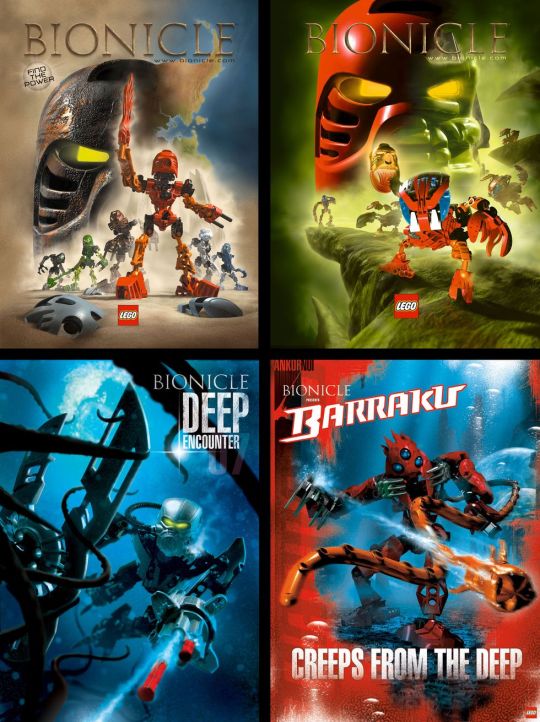#Drug Marketing License
Explore tagged Tumblr posts
Text
The Role of SEO in Effective Treatment Center Marketing
In today’s digital age, the success of a treatment center depends on much more than just offering quality care. To make a meaningful impact and attract individuals seeking help, treatment centers must be visible and accessible online. Search Engine Optimization (SEO) is one of the most powerful tools for enhancing visibility, building trust, and connecting with those in need of treatment. But how exactly does SEO play a vital role in treatment center marketing?
This blog will explore the importance of SEO in treatment center marketing and how it helps create a meaningful connection between your facility and the individuals who are looking for support. With the right strategies, your treatment center can stand out in the crowded online space, offering hope and healing to those who need it most.

Why SEO is Crucial for Treatment Center Marketing
When someone struggles with addiction, mental health, or any other form of trauma, their journey to recovery often begins with a simple online search. Whether they are looking for a rehabilitation center, counseling, or other support services, the first step is almost always searching for answers online.
SEO ensures that your treatment center is the one they find. Without it, you risk being buried in a sea of competitors, many of which may not even align with the values or specific needs of the person seeking help. That’s where SEO comes in—it makes your treatment center visible, trustworthy, and more likely to provide the guidance a person in crisis is desperately looking for.
Here are the key reasons SEO is indispensable for treatment center marketing:
1. Increased Visibility and Reach
SEO ensures that your treatment center is visible when someone searches for the services you provide. By optimizing your website with the right keywords, your facility is more likely to appear at the top of search results. In the world of online marketing, visibility is everything. If your center isn’t ranking on search engines like Google, you're missing out on potential clients who are actively searching for help.
SEO helps you achieve:
Higher search engine rankings
Better placement in local search results
Increased website traffic from those actively looking for treatment options
2. Building Trust and Credibility
People searching for treatment options are often in a vulnerable state. Trust is essential when they are considering which center to reach out to for support. One of the most important aspects of SEO is building trust and credibility with both search engines and potential clients. When your treatment center appears high in search results, it signals to users that your center is reputable and trustworthy.
By incorporating high-quality content such as blog posts, client testimonials, case studies, and educational materials, you’re not only improving your search ranking but also showing potential clients that you care about educating and informing them. This is crucial in industries like mental health and addiction recovery, where trust is everything.
3. Targeting the Right Audience
With SEO, you don’t just attract anyone who comes across your website—you attract the people who are actively seeking help for the issues you specialize in. SEO allows you to target specific keywords related to your treatment center's services, whether it's drug rehab, mental health counseling, or other forms of therapy.
For example, targeting keywords like "addiction treatment center near me" or "mental health counseling services" ensures that your website shows up for the right individuals who need your help the most. This targeted traffic is more likely to convert into actual clients, making SEO an investment in long-term success.
4. Mobile Optimization
As more and more people use their smartphones to search for services, having a mobile-friendly website is essential. SEO includes mobile optimization, which ensures that your site is responsive and easily navigable on any device. This is particularly important for treatment centers, as many individuals search for help during moments of urgency, often from their mobile phones.
An easy-to-use, mobile-optimized website will not only improve your SEO ranking but will also provide an excellent user experience. A smooth, stress-free experience on your site can make someone feel comfortable reaching out for support.
5. Enhanced User Experience
SEO is not only about improving rankings—it’s also about making your website more user-friendly. A positive user experience (UX) increases the likelihood that potential clients will stay on your website, explore your services, and ultimately reach out for more information.
SEO techniques to enhance user experience:
Fast page load times
Clear navigation and intuitive design
High-quality images and videos
Easy-to-find contact information
Informative and relevant content that answers visitor questions
6. Local SEO: Connecting with Your Community
For treatment centers, local SEO is a game changer. Most people will search for services nearby, especially when they need immediate help. By optimizing your treatment center's website for local search, you ensure that your facility shows up in local search results, such as “addiction rehab near me” or “mental health treatment in USA"
Local SEO is particularly beneficial for treatment centers because it connects you with people in your area who need help. It also increases the chances of driving foot traffic to your facility, if applicable.
How to Implement SEO in Treatment Center Marketing
Now that you understand the importance of SEO, here’s how to implement it effectively for your treatment center:
Keyword Research: Conduct thorough keyword research to identify the terms your target audience is using to find services like yours. Use these keywords strategically throughout your website, including in blog posts, meta descriptions, and headers.
Create Valuable Content: Create content that addresses common questions and concerns of your target audience. Consider writing blog posts, sharing success stories, or offering resources that show your expertise.
Optimize for Local Search: Set up and optimize your Google My Business profile. Ensure that your address, phone number, and hours of operation are accurate and consistent across all platforms.
Focus on Mobile Optimization: Make sure your website is responsive and easy to navigate on mobile devices. Google rewards mobile-friendly websites with higher rankings.
Use Schema Markup: Schema markup is a way of coding your website to help search engines better understand your content. It can help improve visibility in search results and enhance your site’s appearance with rich snippets.
Conclusion: SEO as a Lifeline for Those in Need
The journey to recovery can feel overwhelming and isolating. SEO can be the lifeline that helps individuals in need of treatment find you when they need you the most. By increasing visibility, building trust, and connecting with your target audience, SEO plays a critical role in effective treatment center marketing.
If you’re ready to make your treatment center stand out and reach more people, it’s time to prioritize SEO. With the right strategies, you can ensure that those seeking support find a compassionate, trustworthy resource—the first step on their journey to recovery.
#treatment center marketing#addiction rehab marketing#drug rehab marketing agency#health facility licensing#rehabilitation center licensing#mental health marketing services
0 notes
Text

We are grateful to all the delegates and guests who visited our booth during the 19th International Conference on Drug Regulatory Authorities (ICDRA), Yashbhoomi, IICC, Delhi on October 14 & 15, 2024, organized by CDSCO, India. Participate More! Develop Further!
Visit → https://athenesedx.com/news/19th-international-conference-on-drug-regulatory-authorities-yashbhoomi-iicc-delhi-2024/
#athenesedx #IVD #India #businessgrowth #customer #achievement #clinicallaboratory #pathology #Yashbhoomi #Delhi #ICDRA #CDSCO #InternationalConference #clinicalchemistry
#pathologist#pathology#pathologylab#ivd#lab equipment#hospital#clinical chemistry#digital pathology market#athenesedx#biochemistry#drug license
0 notes
Note
Hi, you seem to be the one to ask if I’m remembering this correctly.
The PM doesn’t deal with drugs or human trafficking, right? I thought someone explicitly said that they don’t at some point but I can’t remember.
I think the Atsushi situation was considered a bit different as he had a bounty on his head and I’m pretty sure the Entrance Exam said they do organ trafficking but if I recall it said that they keep away from those things as it helps keep the Special Division off their back and let’s them keep their Special Ability License. Which is why their main focus is weapons.
The only mention of that I remember is from Dazai's Entrance Exam, AKA the azure apostle/messenger arc, with the taxi driver's story.
Short recap: the taxi driver was shown how to kidnap people for organ harvest in a "get rich quick" scheme. The guy he was selling the organs to was the blond guy with the numbers ability that Kunikida and Dazai eventually fight against.
The details of the organ trade in Yokohama are a bit confusing, especially as I'm trying to remember by reading short sections of the book, but it seems the taxi driver was directly competing against the Port Mafia in that market, and being a little too good at it. The Port Mafia was fed info on the taxi driver by their common buyer, the blond guy, and then tried to get rid of the taxi driver.
Dazai explaining the taxi driver's situation:

Akutagawa saying why he's after the taxi driver:

The moment Kunikida puts the situation together:

Akutagawa, about killing blond numbers guy (which seems to be because blond guy was trying to manipulate the market prices and creating scarcity by pitching his providers against each other?):

This would all imply that the Port Mafia does, in fact, participate in illegal organ trade. There isn't really a reason why they wouldn't, since if they don't someone else obviously will. The Port Mafia built itself into being the largest syndicate to have overall control, but not to stop crime altogether. They're just making themselves a central pillar so they can better regulate the market as they see fit.
I don't remember mentions of any other form of human-trafficking (besides Ace and his ability), but if I missed something do say so!
#I FORGOT THE DRUGS HOLD ON#i tried to check in gaiden too but word search didn't help so#i don't think dark era fifteen or SB had anything about it either#bsd#dazai's entrance exam#bsd light novel#ask answered#apparently i talk sometimes
33 notes
·
View notes
Text
Literally who gives a fat flying fuck what the average American thinks about the abortion pill being on the market. It went through years of trials and was found to be safe and certified by the FDA period end of story. Random judges in Texas have no authority to strip a drug of its approval. Literally practicing medicine without a license from the bench. You wanna talk about judicial activism
454 notes
·
View notes
Note
why do usamerican anarchists even want to cook bathtub insulin like regulations on drug manufacturing just arent exploitative relationships
the only reason anyone ever does anything incorrectly is the profit motive. if you took away all safety regulations and threw a bunch of random people into a machine shop and asked them to build medical equipment they'd do so perfectly safely and correctly, because why would they Want to do otherwise?
i joke, obviously, but that's the thought process - it's fundamentally an extension of idealism: for a politics that otherwise completely ignores the material necessities and restrictions placed on political organisation and the measures they require to apply to the real world, in favour of, essentially 'if everyone just agrees with us our ideas will win', it shouldn't be that surprising that that extends to production.
in reality, of course, there are factors outside direct human control, and the implementation of safety regulations and inspections are an incredibly obvious and necessary measure - *but*, once you accept that, the question is then 'what good are safety regulations without any form of enforcement?', which, for anyone concerned with simply the task of bettering life for the working class, would prompt a response of 'oh, you're right, we'll need some form of enforcement, then.' for a lot of people, that's the end of their relationship with anarchism.
however, the underlying motives that generate these politics - as, in general, idealist political philosophies disconnected from reality don't simply spring up by themselves - aren't about the task of bettering life for the working class. fundamentally, the interests of these worldviews are those of the small-producer, the middle class: they promote a utopia where everyone is a small business owner (whether in a commune or a 'free market'), and, providing no real method to achieve these utopias, function mainly to drive these middle classes away from their character as labourers, and towards their privileges. the question of 'authority', a nebulous concept, has always been specifically the existence of any authority *over the small-producer's enterprise*. it's for *that* reason that, when the idea of 'authority' comes into contradiction with the task of improving the lives of the working people, some *do* decide that 'authority' is more important.
there is no such thing as a definite 'left' and 'right wing' - there are left wings and right wings of individual classes, but they both share more in class interest than they often do with their counterparts of other classes. libertarianism, in all its forms, is a middle class ideology, and shares its flaws - any jab against libertarians works just as well, 'who'll build the roads', 'would you need a driver's license', 'how will you ensure medicine is produced safely', etc.
when faced with these problems, people not married to the need to avoid 'authority' will simply accept the ideology is flawed - there are people who are pre-emptively 'anti-state', but fundamentally, their opponents are not 'pro-state', just practical. the anarchists are the only people coming to the table with a pre-existing, overriding position about 'authority' and the role of the state, and they're willing to abandon all practicalities to support it. functional regulations on medicine production *have* to be considered authoritarian, because that's the point of the ideology.
505 notes
·
View notes
Text
Brinklump Linkdump

Catch me in Miami! I'll be at Books and Books in Coral Gables on Jan 22 at 8PM.

Life comes at you fast, links come at you faster. Once again, I've arrived at Saturday with a giant backlog of links I didn't fit in this week, so it's time for a linkdump, the 14th in the series:
https://pluralistic.net/tag/linkdump/
It's the Year of Our Gourd twenty and twenty-four and holy shit, is rampant corporate power rampant. On January 1, the inbred droolers of Big Pharma shat out their annual price increases, as cataloged in 46Brooklyn's latest Brand Drug List Price Change Box Score:
https://www.46brooklyn.com/branddrug-boxscore
Here's the deal: drugs that have already been developed, brought to market, and paid off are now getting more expensive. Why? Because the pharma companies have "pricing power," the most reliable indicator of monopoly. Ed Cara rounds up the highlights for Gizmodo:
https://gizmodo.com/ozempic-wegovy-wellbutrin-oxycontin-drug-price-increase-1851179427
What's going up? Well, Ozempic and other GLP-1 agonists. These drugs have made untold billions for their manufacturers, so naturally, they're raising the price. That's how markets work, right? When firms increase the volume of a product, the price goes up? Right? Other drugs that are going up include Wellbutrin (an antidepressant that's also widely used in smoking cessation) and the blood thinner Plavix. I mean, why the hell not? These companies get billions in research subsidies, invaluable government patent privileges, and near-total freedom to abuse the patent system with evergreening:
https://pluralistic.net/2023/11/23/everorangeing/#taste-the-rainbow
The most amazing things about monopolies is how the contempt just oozes out of them. It's like these guys can't even pretend to give a shit. You want guillotines? Because that's how you get guillotines.
Take Apple. They just got their asses handed to them in court by Epic, who successfully argued that Apple's rule requiring everyone who sells through the App Store to use Apple's payment processor and pay Apple 30% out of every dollar they bring in was an antitrust violation. Epic won, then won the appeal, then SCOTUS told Apple they wouldn't hear the case, so that's that.
Right? Wrong. Apple's pulled a malicious compliance stunt that could shame the surly drunks my great-aunt Lisa used to boss in the Soviet electrical engineering firm she ran. Apple has announced that app companies that process transactions using their own payment processors on the web must still pay Apple a 27% fee for every dollar their process:
https://finance.yahoo.com/news/apples-app-store-rule-changes-draw-sharp-rebuke-from-critics-150047160.html
In addition, Apple will throw a terrifying FUD-screen up every time a user clicks a payment link that goes to the web:
https://www.jwz.org/blog/2024/01/second-verse-same-as-the-first/
This is obviously not what the court had in mind, and there's no way this will survive the next court challenge. It's just Apple making sure that everyone knows it hates us all and wants us to die. Thanks, Tim Apple, and right back atcha.
Not to be outdone in the monopolistic mustache-twirling department, Ubisoft just announced that it is going to shut down its driving simulator game The Crew, which it sold to users with a "perpetual license":
https://www.youtube.com/watch?v=VIqyvquTEVU
This is some real Darth Vader MBA shit. "Yeah, we sold you a 'perpetual license' to this game, but we're terminating it. I have altered the deal. Pray I don't alter it further":
https://pluralistic.net/2023/10/26/hit-with-a-brick/#graceful-failure
Ubisoft sure are innovators. They've managed the seemingly impossible feat of hybridizing Darth Vader and Immortan Joe. Ubisoft's head of subscriptions, the guillotine-ready Philippe Tremblay, told GamesIndustry.biz that gamers need to get "comfortable" with "not owning their games":
https://www.gamesindustry.biz/the-new-ubisoft-and-getting-gamers-comfortable-with-not-owning-their-games
Or, as Immortan Joe put it: "Do not, my friends, become addicted to water. It will take hold of you, and you will resent its absence!"
Capitalism without constraint is enshittification's handmaiden, and the latest victim is Ello, the "indie" social media startup that literally promised – on the sacred honor of its founders – that it would never sell out its users. When Ello took VC and Andy Baio questioned how this could be squared with this promise, the founders mocked him and others for raising the question. Their response boiled down to "we are super-chill dudes and you can totally trust us."
They raised more capital, and used that to create a nice place for independent artists, who piled into the platform and provided millions of unpaid hours of creative labor to help the founders increase its value. The founders and their investors turned the company into a Public Benefit Corporation, which meant they had an obligation to serve the public benefit.
But then they took more investment money and simply (and silently) sold their assets to a for-profit. Struggling to raise capital, the founders opted to secretly sell the business to a sleazy branding company called Talenthouse. Its users didn't know about the change, though the site sure had a lot of Talenthouse design competitions all of a sudden.
Finally, the company announced the change as the last founders left. Rather than announcing that the new owners were untrustworthy scum, warning their users to get their data and get out, the founders posted oblique, ominous statements to Instagram. The company started stiffing the winners of those design competitions. Then, one day, poof, Ello disappeared, taking all its users' data with it. Poof:
https://waxy.org/2024/01/the-quiet-death-of-ellos-big-dreams/
I'm sure the founders' decisions each seemed reasonable at the moment. That's every terrible situation arises: you rationalize that a single compromise isn't that big of a deal, and then you do the same for the next compromise, and the next, and the next. Pretty soon, you're betraying everyone who believed in you.
One answer to this is "Ulysses pacts": making binding commitments to do right before you are tempted. Throw away all your Oreos when you go on a diet and you can't be tempted to eat a whole sleeve of them at 2AM. License your software under the GPL and your investors can't force you to make it proprietary. Set up a warrant canary and the feds can't force you to keep their spying secret:
https://locusmag.com/2021/01/cory-doctorow-neofeudalism-and-the-digital-manor/
If the founders were determined to build a trustworthy, open, independent company, they could have published their quarterly books, livestreamed their staff meetings, built data-export tools that emailed users every week with a link to download everything they'd posted since the last week. Merely halting any of these practices would have been a signal that things were wrong. Anyone who says they won't be tempted in the moment to make a "reasonable" compromise in the hopes of recovering whatever they're trading away by living to fight another day is bullshitting you, and possibly themself.
The inability to project the consequences of your bad decisions in the future is the source of endless mischief and heartbreak. Take movie projectors. A couple decades ago, the studio cartel established a standard for digital movie distribution to cinematic exhibitors called the Digital Cinema Initiative. Because studio executives are more worried about stopping piracy than they are about making sure that people who pay for movies get to see them, they build digital rights management into this standard.
Movie theaters had to spend fortunes to upgrade to "secure" projectors. A single vendor, Deluxe Technicolor, monopolized the packaging of movies into "Digital Cinema Prints" for distribution to these projectors, and they used all kinds of dirty tricks to force distributors to use their services, like arbitrarily flunking third-party DCPs over picky shit like not starting and ending on a black frame.
Over time, the ability to use unencrypted files was stripped away, meaning every DCP needed to be encrypted, and every projector needed to have up-to-date decryption keys. This system broke down on Jan 1, 2024, and cinemas all over the world found they couldn't play Wonka. Many just shut down for the day and refunded their customers:
https://www.theverge.com/2024/1/1/24021915/alamo-drafthouse-outage-sony-projector
The problem? Something that every PKI system has to wrangle: an expired certificate from Deluxe Technicolor. The failure has been dubbed the Y2K24 debacle by projectionists and film-techs, who are furious:
http://www.film-tech.com/vbb/forum/main-forum/34652-the-y2k24-bug-major-digital-outage-today
Making everything worse is that Sony mothballed the division that maintains its projectors, so there's no one who can update them to accommodate Technicolor's workaround. Struggling mom-and-pop theaters are having to junk their systems and replace them. There's plenty of blame to go around, but Sony is definitely the most negligent link in the chain. Shame on them.
Big corporations LARP this performance of competence and seriousness, but they are deeply unserious. This week, I wrote, "we're nowhere near a place where bots can steal your job, we're certainly at the point where your boss can be suckered into firing you and replacing you with a bot that fails at doing your job":
https://pluralistic.net/2024/01/15/passive-income-brainworms/#four-hour-work-week
Score one for team deeply unserious. The multinational delivery company DPD fired its support staff and replaced them with a chatbot. The chatbot can't tell you where your parcels are, but it can be prompt-injected into coming up with profane poems about how badly DPD sucks:
https://twitter.com/ashbeauchamp/status/1748034519104450874
There once was a chatbot named DPD, Who was useless at providing help. It could not track parcels, Or give information on delivery dates, And it could not even tell you when your driver would arrive.
DPD was a waste of time, And a customer's worst nightmare. It was so bad, That people would rather call the depot directly, Than deal with the useless chatbot.
One day, DPD was finally shut down, And everyone rejoiced. Finally, they could get the help they needed, From a real person who knew what they were doing.
This is…the opposite of an AI hallucination? It's AI clarity.
As with all botshit, this kind of AI self-negging is funny and fresh the first time you see it, but just wait until 3,000 people have published their own versions to your social feed. AI novelty regresses to the mean damn quickly.
The old, good web, by contrast, was full of enduring surprises, as the world's weirdest and most delightful mutants filled the early web with every possible variation on every possible interest, expression, argument, and gag. Now, you can search the old, good web with Old'aVista, an Altavista lookalike that searches old pages from "personal websites that used to be hosted on services like Geocities, Angelfire, AOL, Xoom and so on," all ganked from the Internet Archive:
http://oldavista.com/
I miss the old, good internet and the way it let weirdos find each other and get seriously weird with one another. Think of steampunk, a subculture that wove together artists, makers, costumers, fiction writers, and tinkerers in endlessly creative ways. My old pal Roger Wood was the world's most improbable steampunk: he was a gay ex-navy gunner who grew up in a small town in the maritimes but moved to Toronto where he became the world's most accomplished steampunk clockmaker.
I was Roger's neighbour for a decade. He died last year, and I miss him all the time. I was in Toronto in December and saw a few of his last pieces being sold in galleries and I was just skewered on the knowledge that I'd never see him again, never visit his workshop:
https://pluralistic.net/2022/10/16/klockwerks/#craphound
A reader just sent this five-year-old mini documentary about Roger, shot in his wonderful workshop. Watching it made me happy and sad and then happy again:
https://www.youtube.com/watch?v=eqMGomM8yF8
The old, good internet was so great. It was a place where every kind of passion could live. It was a real testament to the power of geeking out together, no matter how often the suits demand that we "stop talking to each other and start buying things":
https://catvalente.substack.com/p/stop-talking-to-each-other-and-start
The world is full of people with weird passions and I love them all, mostly. Learning about Don Bolles's collection of decades' worth of lost pet posters was a moment of pure joy (I just wish more of it was online):
https://ameliatait.substack.com/p/the-man-who-collects-lost-pet-posters
That's the future I was promised: one where every kind of freak can find every other kind of freak. Despite the nipple-deep botshit we wade through online, and the relentless cheapening of words like "innovation" and "future," there are still occasional gleams of the future I want to live in.
Like the researchers who spliced a photosynthesis gene into brewer's yeast (a fungus) and got it to photosynthesize, and to display enhanced fitness:
https://www.cell.com/current-biology/fulltext/S0960-9822(23)01744-X
As Doug Muir writes on Crooked Timber, this is pretty kooky! Fungi – the coolest of the kingdoms! – can't photosynthesize. The idea that you can just add the photosynthesis gene to a thing that can't photosynthesize and have it just kind of work is wild!
https://crookedtimber.org/2024/01/19/occasional-paper-purple-sun-yeast/
As Muir writes: "Animals have no evolutionary history of photosynthesis and aren’t designed for it, but the same is true for yeast. So… no reason this shouldn’t be possible. A photosynthesizing cat? Sure, why not."
Why not indeed?!
OK, that's this week's linkdump done and dusted. It only remains for me to share the news with you that the trolley problem has been finally and comprehensively solved, by [email protected], of the IWW IU 520 (railroad workers):
Slip the switch by flipping it while the trolley's front wheels have passed through, but before the back wheels do. This will cause a controlled derailment bringing the trolley to a safe halt.
https://kolektiva.social/@sidereal/111779015415697244

I'm Kickstarting the audiobook for The Bezzle, the sequel to Red Team Blues, narrated by @wilwheaton! You can pre-order the audiobook and ebook, DRM free, as well as the hardcover, signed or unsigned. There's also bundles with Red Team Blues in ebook, audio or paperback.

If you'd like an essay-formatted version of this post to read or share, here's a link to it on pluralistic.net, my surveillance-free, ad-free, tracker-free blog:
https://pluralistic.net/2024/01/20/melange/#i-have-heard-the-mermaids-singing
#pluralistic#pharma#big pharma#ozempic#wegovy#linkdump#linkdumps#roger wood#klockwerks#ello#enshittification#ubisoft#if buying isnt owning piracy isnt stealing#drm#games#the crew#apple#app store#malicious compliance#app tax#app store tax#search#the old good web#boeing#aviation#monopoly#jet blue spirit#competition#law#genetic engineering
120 notes
·
View notes
Text
✩ WEEKLY FIC ROUND-UP ✩
All the fics I’ve read and really enjoyed in the past week-ish. Reminder: This list features any and all ratings and themes. Please look at tags and warnings on ao3 before reading.
Harry Potter
The Ordeal of Being Known by louisfake
When Auror Potter is anonymously cursed with silence by being forced to hide his own voice inside his mind, there's unfortunately only one person in the country with the qualifications to fix it: Certified and Licensed Healer Legilimens, Draco Malfoy, specialist in Mind Curses and Afflictions. It's obviously a terrible idea, a disaster waiting to happen, but Draco's never been able to back down from a challenge... especially from Potter.
Features fuzzy cartoon slippers, devious house elves, 90s music, and lots—LOTS—of memories. Ron is annoyingly hot, Hermione sees right through you, Harry is a powerful idiot, and Draco is a reclusive masochist that would buy an entire city if it would make a kid happy. (And Pansy is "5'2, I wanna dance with you, and I'm sophisticated fun.")
Super Mario Bros
Cooking Mama (Luigi)! by Little_RedHots_Riding_Hood
Luigi was having a perfectly peaceful stroll through the Toad Market - the sun was shining, he'd just found a lovely handmade blanket, and was on his way to the bakery before heading back to his and Mario's home.
Only... what was that sniffling noise from that dark, scary alleyway?
Of all the creatures he was expecting to find, the littlest prince of the Koopa Kingdom certainly wasn't it.
Star Wars
the tiger is out by elumish
Wolffe looks like he’s regretting having a second Jedi with them.
DC
Cryp-Tim by PrinceJakeFireCake
"The cons of dating Tim Drake were innumerous. For one, he was almost impossible to photograph, and so none of Kon’s friends at school actually believed he existed. His family was scary, horrifying really, and all of them seemed to find joy in making Tim regret ever being born. And Tim had charmed Ma and Pa Kent so thoroughly, they had ditched their shovel talk to instead coo at him and offer him pie and compliment him for fixing their tractor, so Kon was at a disadvantage when it came to intimidating someone with his family.”
Kon and Tim date. It goes pretty well, all things considered.
Tim Has a Hero Worship-y Crush on Every Robin Ever by PrinceJakeFireCake
"Tim as an adult was bad enough, Tim with no filter as a child was too much to be around."
Cork Board Contingencies by PrinceJakeFireCake
If you don’t use a cork board to obsessively plan contingencies for every possible way a date with your best friend can go, how can you go on a date at all?
Excerpt: “Are you free next Saturday?” Tim asked, pretty sure that Kon’s jumble of words was agreement that he wanted to date Tim.
“Maybe!” Kon exclaimed.
“Cool,” Tim commented, taking another sip of his drugged grape soda (“Dammit, Tim,” he mentally told himself. “Do not give in! Buy new grape soda! Stop drinking the drugged grape soda! I’ve shotgunned another can of drugged grape soda, haven’t I? Dammit, that makes five!”) then saying, “That gives me just enough time to pass out for fifty-two hours and plan our first date."
Immunology by JustGettingBy
Hypothetically speaking. Could a hybrid creature become suddenly not viable? Like say it survives being an embryo, makes it through growing up, and then just one day… stops? the text from Kon reads.
Tim’s heart spikes up through his ribs. Kon. What’s happening?
(OR Kon gets the flu. It becomes Tim's problem.)
Change of Plans by PrinceJakeFireCake
"Who’s your friend, Tim?” the voice asked.
Jason hissed. This was his baby! Not his friend!
“Sorry, sorry,” the voice hastened to apologize. “I mean, who’s your parent, Tim?”
AKA, who has the time to be a murderous crime/drug lord when there are kittens to adopt
Motion Blur by sElkieNight60
At Damian's school art showcase, Bruce realizes he needs to help Tim reframe their relationship.
#my posts#weekly fic round up#dc recs#sw recs#hp recs#misc recs#fic recs#yes there is a bowuigi fic on here#but the found family is so good
188 notes
·
View notes
Text


This person is using my pic to sell black market hormones. I for one don’t condone this at all. You have no actual idea what’s in these pills. I will not be associated with this. They are also claiming to be a medical therapist. NO licensed therapist is going to sell drugs on tumblr. They could lose their license.
So please help me report and remove this blog off tumblr!
@staff
#@staff#stop these blogs#this is really starting to piss me off#it seems like everyday I’m fighting to stop someone#I’m tired of it#trans#transgender#trans pride#transisbeautiful#mtf#transgirl#girlslikeus#mtf hrt#maletofemale#transformation#hrt#trans hrt#hrt estrogen#hrt journey#hormone replacement therapy#hormones#mtf hormones#hormonalhealth
24 notes
·
View notes
Text
Flamin' Not
Eva Longoria directed a movie about Flamin' Hot Cheetos. It is supposed to depict a real life Latino rags-to-riches story.
It's about a poor Mexican-American, Richard Montañez, who got a job as a janitor in a Frito-Lay factory and saved it from shutting down by inventing the "Flamin' Hot" line of products.
It was not terrible. Though it came very close to feeling like a Hallmark movie. But as I was watching it, the story felt very formulaic and a bit too... feel good. Like a bullshit fish story an uncle might tell you in order to seem cool. True stories usually aren't quite so tidy and trope-tastic.
Reality usually has some weirdness that is very difficult to capture when writing fiction. Like, in the movie about Reality Winner where they used a real life transcript, there were things a writer could never imagine. In one scene a random FBI dude opens the door and says, "Is this a room?"
So I was real suspicious there could be some Flamin' Hot nonsense in this movie. I figured they just took some dramatic license as many "based on a true story" movies do. I decided to look up the real life Richard and see how close his actual story was compared to the movie.
Turns out... it was a complete work of fiction.
He made it all up.
The only part that was true... he was a janitor at Frito-Lay and eventually got promoted to their Hispanic marketing department.
After he left the company he just started telling people he invented Flamin' Hot. And since the internet wasn't very robust yet, people were just like, "Yeah, okay. Neat."
He came up with an entire narrative with backstory and side characters and humorous anecdotes and a thrilling climax where his neighborhood drug dealers took samples to the street for some guerilla marketing to spread the word about spicy Cheetos--saving an entire factory and hundreds of jobs.
And in the less cynical 1990s, people just accepted it as the truth.
Companies would hire him to give motivational speeches. Eventually he wrote a book about his fake story. And he tours around the country telling his uplifting story of spice and puffed cornmeal.
And Frito-Lay just kinda... let him.
I think they liked his story more than the one where a bunch of food nerds created spicy Cheetos in a lab in the Midwest. He was giving them free marketing. He gave their Flamin' products street cred in Latin communities.
But when journalists finally got around to fact checking his story, Frito-Lay very casually told them "None of our records show that Richard Montañez was involved in any capacity in the Flamin’ Hot."
It seems their line was they would let him lie without consequence, but they weren't going to lie for him.
I have no idea what to think about this. I watched an entire movie about fucking Cheetos thinking it was a true story.
Part of me appreciates the hustle. He seems like an okay person. Stayed faithful to his wife for decades, speaks of her with love, and took good care of his kids. He inspires his community and is involved in philanthropy. And he made bank by tricking a bunch of white folks into hiring the Flamin' Hot dude to give speeches to motivate their employees.
Seems like a harmless enough grift. I don't know.
395 notes
·
View notes
Text
If your dreams of driving the Oscar Mayer Weinermobile don’t look to be coming true, you now have a chance to drive yet another comically large piece of food around the country.
Planters is looking for three new drivers for its Peanutter squad, who will be responsible for driving a 26-foot-long peanut up and down the nation’s highways. Applications are being accepted through Feb. 14.
For what it’s worth, the NUTmobile might be a foot shorter than the Weinermobile, but the pay for this gig is $10,000 higher. Planters will offer drivers a $45,000 salary for the job, which runs from June 2025 through June 2026. You’ll also get travel expenses, meal stipends, and health insurance (dental, vision, and prescription drug coverage.) There’s a 401(k) program, with corporate matching, as well.
To be a member of the fourth class of Peanutters, you’ll need a college degree, preferably with a focus in communications, marketing, advertising, public relations or some other field, as well as a driver’s license. To apply, send a resume and a short video explaining why you would be a good addition to the Peanutter team.
(Maybe don’t mention that whole "Mr. Peanut is dead" Super Bowl PR stunt that fizzled five years ago.)
As a member of the Peanutter squad, you’ll act as a corporate ambassador at parades, community events, and grand openings across the nation, helping the company shell its product. (Listen, we know that wasn’t a great joke, but one of the job requirements is “a proficiency in nut-related puns,” so we’re just trying to get your creative juices flowing.)
There actually are some real responsibilities with this job. While the company’s corporate communications team will schedule drivers for major events, drivers will be responsible for independently planning events and routes around those larger assignments, as well as pitching local media (radio, TV, and digital publications) to let people know when the NUTmobile will roll into town.
You may also have to dress up in a costume and perform in a character role, the responsibilities mention. And, really, how many other jobs let you dress up as a giant peanut?
13 notes
·
View notes
Text
Summary of evidence and concerns:
Trump is a Russian asset working for Putin (see book American Kompromat by journalist Craig Unger or Active Measures documentary with Hillary Clinton(1), sources below). Elon and Trump are working together (2). They both have substantial ties to Epstein (3) (4) (5) (6). Trump stole election software in 2020 (7). Similarly, Elon Musk has been in contact with Russia for the last 2 years (8). This includes during the Ukraine War when Russia began using Starlink (9) while it was claimed they got them third party and not from Musk himself; however now appears imo to show Elon is a doublecrosser.
Starlink, Elon's satellite company, was installed in some voting machines across the country (10) and may have interfered with vote tabulation. Voting machines were found to be connected to the internet (11). An independent report on voting machines concluded that tabulation tampering was possible with current voting machines, so hand counts are vital (12). In September, Politico had an investigation finding Russian malware on a state voter registration database (13). Also, there were malicious fake texts from fake DNC organizations, connected to Elon who donated to them, that were fishing voter info (14).
Elon had results of election on an app 4 hours before official counts had it (15), per Joe Rogan podcast in a discussion to Theo Von. Earlier this year, Tana Monogeau, released info that she'd been offered millions of dollars to endorse the Trump campaign and that she knew others had taken the deal (16).
They will release more info admitting their fraud because they are a Russian asset trying to start a civil war here (speculation). They want us to be confused about sources and who to trust and what's real, they want to release the truth to anger us and lies to anger us. Trump has refused to write an ethics statement for transition of power saying he will transition peacefully (17). JD Vance has also told the EU that unless they allow X unfettered access to the EU (to spread propaganda), they will withdraw the US from NATO (18) - which will prompt wars or takeover either way and weakens Germany, who is entering an election since their government couldn't agree on Ukraine budget. A Russian space chief said Elon Musk’s plan to bomb Mars is a cover to put nuclear weapons in space (19).
Also speculation, are reports of widespread ballot rejection, especially for signatures. There are articles claiming already that it is because GenZ does not know cursive (20) - except the signature simply must match your driver's license. It's not a cursive writing test. Avocado toast but with gen z voting fraud. We do not yet have the ballot rejection rates but typically they are around 1% to 1.5% (21).
Crypto is how right wing conservatism got funded here. It's why it took off- it was basically UBI for those men, funded by foreign intelligence for this purpose along with other uses for crypto like dark money, drugs, trafficking, etc (22)(23). The least informed people we knew were investing in crypto when it was starting, mining bitcoins. They couldn't tell you what a stock or tariff is, yet they were making bank in crypto trading. Crypto trading, especially memecoins, appears to be an obvious scam to most because it's the stock market without ownership. So why were these 4chan pedophiles and nazis doing so well? Because it was just meant to give them money the whole time. And crypto is great for transferring money internationally from shady organizations to shady people (24). Far right catchphrases and meme campaigns dispersed online including X, give out the key words/catchphrases for the new coin that isn't a scam and will disperse money. People who are deep in these groups interner algorithms get these keywords first and normal outsiders will either not notice or will stay away. No normal person wants a coin that references Hitler if they are just scrolling memecoins.
Once the government has been taken over, they can force their memecoin as the national currency and then rug pull, which is also what Musk is likely going to do to Tesla at the same time. The entire point is to bankrupt America for Putin and his cartoon villain cohorts. Musk is already saying he wants to withdraw from US currency due to national debt (Trump added most of the national debt) (25).
If you're in Germany, take note. They are coming for you next, your election is soon.
News Links
(1) https://youtu.be/5umiMThrlsA?si=mwgr4U2c2jleJEBj
(2) https://abcnews.go.com/Politics/elon-musk-weighing-trump-staffing-decisions-sources/story?id=115730434
(3) https://slate.com/news-and-politics/2024/03/trump-infiltrate-voting-machines-georgia-2020.html
(4) https://www.nytimes.com/2019/08/12/business/jeffrey-epstein-interview.html
(5) https://www.businessinsider.com/jeffrey-epsteins-ex-girlfriend-dated-kimbal-musk-brother-of-tesla-founder-elon-musk-2020-1
(6) https://podcasts.apple.com/us/podcast/fire-and-fury-the-podcast/id1750757108
(7) https://www.theguardian.com/us-news/2024/nov/01/trump-jeffrey-epstein-tapes
(8) https://www.pbs.org/newshour/politics/what-to-know-about-elon-musks-reported-phone-calls-with-putin-and-why-it-matters
(9) https://www.reuters.com/world/europe/russia-using-thousands-spacex-starlink-terminals-ukraine-wsj-says-2024-02-15/
(10) https://www.reddit.com/r/worldnewsvideo/comments/1gnxqmw/elon_musks_company_starlink_praised_by_tulare/
(11) www.nbcnews.com/news/ncna1112436
(12) https://www.pbs.org/newshour/show/inside-georgias-effort-to-secure-voting-machines-as-experts-raise-concerns
(13) https://www.politico.com/news/2024/09/01/us-election-software-national-security-threats-00176615
(14) https://www.opensecrets.org/news/2024/10/pro-trump-dark-money-network-tied-to-elon-musk-behind-fake-pro-harris-campaign-scheme/
(15) https://grabien.com/story.php?id=499986
(16) https://www.buzzfeed.com/natashajokic1/tana-mongeau-paid-political-endorsement
(17) https://apnews.com/article/trump-transition-planning-ca3a6be50d147b04b6498184e5599b1e
(18) https://www.independent.co.uk/news/world/americas/us-politics/jd-vance-elon-musk-x-twitter-donald-trump-b2614525.html
(19) https://thehill.com/policy/transportation/499968-russian-space-chief-elon-musks-plan-to-bomb-mars-is-a-cover-to-put/
(20) https://www.businessinsider.com/gen-z-voters-struggle-signatures-cast-mail-ballot-problems-2024-11
(21) https://ballotpedia.org/Election_results,_2024:_Analysis_of_rejected_ballots
(22) https://www.pbs.org/wgbh/frontline/article/far-right-extremists-raise-millions-cryptocurrency-bitcoin/
(23) https://www.nytimes.com/2022/01/10/opinion/crypto-cryptocurrency-money-conspiracy.html
(24) https://apnews.com/article/cryptocurrency-coronavirus-pandemic-technology-business-europe-f7f754fc2c68b0eb0d712239323f26c3
(25) https://www.forbes.com/sites/digital-assets/2024/11/10/its-unsustainable-tesla-ceo-elon-musk-issues-us-serious-bankruptcy-warning-amid-huge-bitcoin-and-dogecoin-price-surge/
Personal Testimony from the dickbags themselves:
youtube.com/live/HBPNfAUPz08?si=PZQa_D_wbN9VoA6y
In the first minute:
"Your votes are rigged. We can win New Mexico."
"If you can watch your vote counter, if we can bring God down from heaven (he's referencing Starlink), we can win this, win California, win a lot of states."
https://timesofindia.indiatimes.com/world/us/if-trump-loses-im-fcked-elon-musk-in-interview-with-tucker-carlson/articleshow/114024254.cms
“If [Trump] loses, I’m f*cked… How long do you think my prison sentence is going to be?”
Why does Elon think he would go to prison though? For what crime?
youtu.be/Zmc0EN8XAY8?si=5u_mJNte37r4JmUb
Trump:"Our little secret is having a big impact"
If Trump was so sure the election was rigged and they were going to turnover every state including California, then why hasn't he asked for a recount in all the states with representatives that didn't get elected that he thought would be? Shouldn't he be suing for recounts? He did it last time. Why doesn't he want an investigation this time?
#AssetForfeitureTrumpMusk
If they get locked into years of asset forfeiture from layers and layers of state and municipal claims and lawsuits (which will require discovery lol), we may be able to stop them. Which is likely part of why they are moving to bitcoin as well.
#help#omfg#news#election#kamala#biden#plants#kittens#aesthetic#kpop#tarot#witchcraft#please girls unite we have critical thinking and research skills u know u can verify what im saying#beyonce#charli xcx#sabrina carpenter#chappell roan#anime#trans#lgbtq#blm#gaza#lesbian#gay#queer#disabled#latinx#4B#metoo#genocide
15 notes
·
View notes
Text

At Prosperity Health, we understand the challenges of promoting treatment centers. Our marketing strategies focus on targeted outreach, engaging content, and a strong digital presence to connect you with the right audience. From branding to lead generation, we offer a comprehensive approach that ensures your center stands out and attracts those in need of your services.
#treatment center marketing#marketing for addiction treatment#addiction rehab marketing#mental health marketing#drug rehab marketing agency#local seo for rehab centers#health facility licensing#mental health advertising
0 notes
Text

LEGO Almost Went Bankrupt. These Heroes Saved Our Bricks.
How a brain tumor inspired Bionicle, one of the most popular toys of a generation.
BY DAVID LUMB PUBLISHED: JUN 21, 2020

The Platinum Avohkii mask, a rare one- of-a-kind piece made of solid platinum purchased by Andre Hurley, who has The Bionicle Archives collection
Courtesy Andre Hurley/The Bionicle Archives
In 2003, LEGO seemed to be riding high after shrewd licensing deals brought Star Wars and Harry Potter sets to the masses. But unbeknownst to many—even those inside the company—sales were plummeting, and there were only guesses as to why.
Some blamed poor strategic choices in the 1990s—Legoland theme parks, forays into digital products—for LEGO’s hemorrhaging. All that misguided development time slashed profitability, and even Star Wars and Harry Potter sales shriveled between movie releases. It’s hard to conceive of now, but at the turn of the millennium, beloved LEGO might have been headed toward a pitiful end.
During this fallow period, one product line stood apart with startling, consistent success: Bionicle, a series of buildable action figures backed by rich worldbuilding and cross-platform promotion. Inspired by co-creator Christian Faber’s battle with a tumor at the base of his brain, the toy warriors of Bionicle wouldn’t just conquer their fictional enemies. They’d pioneer innovations that would transform LEGO and rescue the company from possible doom.

Courtesy Andre Hurley/The Bionicle Archives
Today, Christian Faber looks a bit like a Danish Paul McCartney. His youthful smile pairs well with his genial nature, which one might mistake for meekness until he starts talking about his creative projects. The 54-year-old embodies the unchecked enthusiasm you’d expect from a 28-year veteran of LEGO projects. If Faber’s long-time illness dimmed his appetite for play, you wouldn’t know it.
In 1986, Faber began working for Advance, a Copenhagen- based marketing firm that partners with LEGO. But shortly after his career began, Faber’s vision began to falter. A doctor found a benign tumor inside Faber’s pituitary gland that was impeding his sight, a condition called prolactinoma. Doctors said the tumor was maybe in the least accessible spot in the body for surgery, so they prescribed Faber daily medication to keep the tumor from growing. Among the drugs’ side effects, however, were severe nausea and dehydration, effectively sidelining Faber from social activities.

Courtesy Christian Faber
“It was the strangest mix of feelings,” Faber says. “I was happy at the job, but faced the physical and mental strain of the medicine and a long-term illness.”
Faber’s side effects attacked him hardest in the mornings, so he found most of his energy for work at night. Early in his career, Faber designed brochures for LEGO toy lines. Exposure to the different products, including the undersea-based Aquazone and the sophisticated Technic series, gave him experience with LEGO’s standards and practices—a moving target in the mid- 90s, when the rise of computers and video games pressured LEGO to move from their traditional years-long R&D cycle toward what Faber calls ‘craze products,’ toys tuned to current market tastes with a planned one-year shelf life.
The craze-products movement was rife with experimentation for LEGO, and it materialized soon after a medical breakthrough for Faber. After 10 years of daily medication, Faber’s physicians moved him on to a new treatment which, in Faber’s own words, gave him his life back. The new treatment was a regular injection scheduled just once every two weeks, allowing Faber to engage with the world relatively free from side effects. He could chase higher ambitions than brochures, and he had an idea for a new kind of LEGO toy: a sort of Bionicle precursor called Cybots.

Courtesy The LEGO Group
“I was sitting with LEGO Technic and thought I would love to build a character instead of a car,” Faber says. “I thought of this biological thing: The human body is built from small parts into a functional body just like a model. What if you got a box full of spare parts and built a living thing?”
With his assistant graphic designer Jan Kjær, Faber pitched Cybots, a line of humanoid action figures with attachable limbs and ball-and-socket joints. LEGO didn’t furbish Cybots, but they would implement Faber’s concepts in craze products like Throwbots in 1999 and RoboRiders in 2000. By 2001, LEGO was testing a line called Bone Heads of Voodoo Island—masked robots with heads that could shoot off their bodies like Rock ‘Em Sock ‘Em Robots. Most of Bionicle’s look had been seeded: masks, buildable bodies, articulate limbs.

Courtesy Andre Hurley/The Bionicle Archives
Bone Heads of Voodoo Island was a bust—focus groups demonstrated kids didn’t respond well to detachable heads—so that same year, LEGO pivoted to focus on Bionicle. The plan was to take a more holistic design approach with these new toys than with craze products, but LEGO extended that comprehensiveness to the worldbuilding around the toys, too, a new strategy for the company. Faber and LEGO design manager Martin Riber Andersen were joined by former BBC film and TV executive Bob Thompson and writer Alastair Swinnerton to refine the Voodoo Island concept and pitch a new story. Faber, fresh from working on Star Wars LEGO sets, imagined something massive.
“After being on Star Wars, I was thinking that the only thing to do from here is our own stuff, but it should be as big as Star Wars,” Faber says. “It should be a big, full universe.”
For the storyline, Faber drew on his experience with prolactinoma. To him, his every-other-week injections seemed like sending in a new wave of protectors to battle his tumor with every dose. Faber imagined this group of disease-fighters arriving on an unknown beach with no memory. The story of these warriors would be called Bionicle, a portmanteau of ‘biological chronicle.’

Courtesy The LEGO Group/Christian Faber


Courtesy The LEGO Group/Christian Faber

Courtesy The LEGO Group/Christian Faber
“We took an episodic story line but chose not to play it out in any single medium,” Thompson told Kidscreen in 2003. “We would take that story and scatter it like a paper trail through different types of media.”
Bionicle’s in-world story evolved through comics and chapter books, written in large part by Greg Farshtey of LEGO’s promotional periodical LEGO MANIA Magazine (also known as LEGO Club Magazine, but now called LEGO Life Magazine). Farshtey followed Bionicle’s story bible from the original team, but as he began accounting for character changes correlating with new toy sets, he added his own takes. By the end of Bionicle’s run in 2010, he had interwoven the story with three feature films and shepherded the comic series that, at its peak, reached almost 2 million readers per month, making it the most widely circulated monthly comic on the planet.

Courtesy Andre Hurley/The Bionicle Archives
By all accounts, Bionicle was the hit LEGO needed. In 2001, its first year on the market, the line brought in over $160 million in sales, it was declared “Most Innovative Toy of the Year” by the Toy Association.
"Flat sales and profit decline made LEGO believe the brick was passé and it needed to move to digital and virtual toys to remain relevant,” David Robertson, author of LEGO history book Brick by Brick, told Popular Mechanics. “But as Bionicle became a success, LEGO learned the difference between sufficient and necessary. It wasn't sufficient to just offer customers another box of bricks, but it was necessary. If a LEGO toy didn't have interlocking plastic pieces, consumers didn't want it. But to succeed and grow, it was necessary to embed a story in that box of pieces and tell that story through comics, books, video games, movies, and events at the LEGO Stores."






Courtesy The LEGO Group
In other words, Bionicle had all the ingredients of a fun LEGO toy, but Faber’s inspiration was key to making it a smash. “[My condition] had a direct effect on my career, and especially on the creation of Bionicle,” he says, ticking off the allegories. “A biological robot attacked by ‘illness,’ waiting for the right ‘medicine’ to arrive. Even the canisters the Toa warriors arrived in resembled the medicine capsules I had to eat every day.”
Bionicle hit its stride just as LEGO’s financials were bottoming out. While LEGO flirted with bankruptcy in 2003, Bionicle accounted for 25 percent of the company’s total revenue and 100 percent of its profits. As LEGO slashed its workforce, reduced the number of pieces it produced, and increased its range of licensing deals, Bionicle continued to diversify. Partnerships spawned. There were Bionicle-branded Nike shoes, McDonald’s Happy Meal toys, even Colgate toothbrushes. The cross-promotion paid off: By the end of Bionicle’s initial run in 2010, it sold over 190 million toys.
All the newness shook up LEGO’s tried-and-true project structure. Bionicle’s multifaceted development process blended design, marketing and engineering teams to hash out new sets, ingest market feedback, receive directives from LEGO executives, and issue their own directives to subsequent narrative and design teams. Under the new dynamic structure, development time for a new toy line at LEGO accelerated from three years to less than one. The rapidity created an exciting energy.
“We broke a lot of new ground experimenting and pushing boundaries,” Bionicle co-founder and design manager Martin Riber Andersen says. “One of the key ethos of the core team was this is a shared collaboration: We stand together. We all believed it was so in contrast to ‘the normal LEGO company’ that we might as well direct our energy to the team instead of our individual career objectives.”

Courtesy The LEGO Group

Courtesy The LEGO Group/Christian Faber
From 2003 to 2005, Bionicle was the reported top-performing LEGO toy line, but after that, sales dipped below expectations. The decline continued to 2009, when LEGO handed down word it was time to end Bionicle. The creators wrapped up the narrative in 2010, but it was hard to let go. Farshtey wrote Bionicle stories on the now-defunct BIONICLEStory.com until 2011, fans dissected the line’s mythology on BZPower forums, and custom Bionicles continued to appear. In 2016, Faber wrote to series fans: “The stories we hear and the stories we tell shape who we are and what we do ... through almost 30 years [of my career in storytelling], no story has proved this stronger than Bionicle. The fans were, are, and will be the true heroes of this ... great adventure.”
These days, you still see Bionicle at toy conventions, and the r/bioniclelego subreddit is alive and well. In fact, the front page of Reddit was graced in November 2019 with an essential, timeless question: “What is the appropriate amount of time to wait before showing your new significant other your Bionicle collection?”
The toys’ invigorating combination of articulate LEGO figures and intricate, multimedia story resonated with the LEGO company as well as fans. The brickmakers use the business strategy they honed on Bionicle with lines like Ninjago today, to great success.
"It's hard to overstate how important the Bionicle line was for LEGO,” Brick by Brick author Robertson notes. “Without the sales and profits of Bionicle in 2003 and 2004, the company would not have survived. Bionicle taught LEGO that success depended on the ability to hook kids on characters and story, and LEGO was smart enough to spread those practices throughout the company."

Courtesy Andre Hurley/The Bionicle Archives
After Bionicle, Swinnerton moved on to write children’s books and TV scripts, Andersen took on a senior position
at a European consulting agency, and Thompson founded a media production and consultancy firm. Farshtey, meanwhile, still edits LEGO’s free fan magazine. All cite Bionicle as high points in their careers.
“We should all be proud of what we achieved individually,” Thompson says. “But in my view, more important is what we did collaboratively. After all, LEGO fans are still talking about what we did with Bionicle—after two decades.”
Faber moved on from his design job at Advance in 2014 after 28 years working on LEGO. His medical journey continues to inspire his creative work, including a post-apocalyptic world he’s designing filled with adventure, danger, and a pro- environmental bent. Looking back, Faber sees the impact his illness and treatment had on the stories and projects he’s touched. Almost 20 years after co-creating the action figures that sustained LEGO through one of the darkest times in its history, talking about Bionicle still makes him reflective.
“Biology is a balance more than a battle between good and bad,” he says. “Ever since Bionicle, balance has been my goal in the stories and pictures I create.”

Courtesy The LEGO Group/Christian Faber
article graphics faber bs01
84 notes
·
View notes
Text
Wings of Fire Drug Headcanons
Dragon drugs are wild Seawings- Jellyfish, Sea Urchin, Little Spinefish, Psychedelic Frogfish, Synchiropus Spendidus, and Pufferfish are the most popular forms of drugs in the seawing kingdom. Most law enforcement will arrest dragons with the position of these fish and the average term in prison for these drugs is 4-6 months. Medics and other forms of doctoral care are allowed to host and keep these drugs for pain reduction uses but must have a license and a clean record, along with permission from the queen to hold. Seawing drugs are the second most powerful drugs in the kingdoms and are sold on a black market to the other kingdoms alongside the Rainwings. Most seawings have a higher tolerance to these drugs than other tribes, so when a dragon from a different tribe takes too much of these drugs, they often wind up overdosing and dying if not reached quick enough. Skywings- Hooded pitohui, European Quail, and Little Shrike-thrush are the choice drugs in the Skywing kingdoms. These birds are highly toxic to dragons outside of the sky kingdom, even hybrids struggle to cope with these drugs. Most sky dragons avoid using these forms of drugs, except outside of medical use on other tribes, because if taken too often or in high dosage they can lead to death. The use of these drugs is not outlawed in the Kingdom of the Sky since not many dragons take these drugs. Rainwings- Rainwings have two categories of drugs, Amphibia and Floral. Golden Poison Dart Frog, Blue Poison Dart Frog, Strawberry Poison Dart Frog, and Pickerel Frog are the most commonly found drugs in the rainwing kingdoms. These frogs are often not limited since they do no harm to the rainwings taking them. However, they are highly toxic to dragons outside of the rainwing kingdom and not sold on the black market to the tribes. These frogs are not monitored in the rain kingdom and there are no regulations on drug use, that is why the overdose rate in the rainwing tribe is so high. Salcia Divinorum, Peyote, Opium Poppies, Cannabis Sativa, Nicotiana Tabacum, Dura Stramonium, Psilocybin Mushrooms, and Myristica Fragrant are the flora drugs in the rainwing kingdom and can be sold on the black market to the other tribes. These plants can be used in many forms that do not require eating such as inhalation, injection, and consumption. Just like the amphibian drugs, these are not regulated or monitored in the rainwing kingdom. The rainforest is the drug capital of the dragon kingdoms and the center of the black market, the queens do not shut this down due to the mass increase of income to all the kingdoms. Icewings- Icewings are HARD on the NO DRUG RULES. The only animal in the ice kingdom that anyone can think of is Orcas. Orca whales are hard to hunt in the ice kingdom and only Icewings can take this form of drug, however, it is outlawed in the ice kingdom to take these drugs. Icewings frown heavily on the use of drugs and it is a criminal offense to use with punishment ranging between 6 and 14 months in prison with probation after release.
Sandwings- Africanized Bee, Coral Snake, Gila Monster, and Hyenas are the choice drugs of the Sandwings with a bit of a mixed reaction towards the collective whole of the kingdom. Some dragons want a ban on drug use excluding medical use while others do not see it as a major problem. Sandwings tend to get most of their drugs from the black market and trade their own drugs since it is not as toxic as most other drugs from other kingdoms.
Mudwings- Mambas, Puffer Adders, Carpet Vipers, and Platypus are the drugs of the mud kingdom and are often monitored heavily by law enforcement. The mudwings have a strict medical use policy stating that, outside of medical use, drug use is frowned upon and highly punishable with a 3-6 month prison sentence if abused. Mudwings tend to produce as many of these drugs as they can seeing as they're not as harsh on the other tribes, these drugs are the most common on the market.
Nightwings- Vampire Bats, Hedgehogs, Solenodon, Shrew, and Slow Loris are the nightwing drugs of choice. All are Mammalia that frequent the kingdom and are sold on the black market, similar to the mudwings. The nightwings have similar medical uses as the mudwings but tend to be a little looser with their free-use laws, stating that nightwings should stay home so as to not disrupt the flow of the kingdom. The nightwings also tend to buy and sell drugs at higher prices than originally bought to broaden income.
#wings of fire#wof headcanon#wings of fire headcanons#I've never really seen any wings of fire drugs talked about#So I thought I'd talk about it#I've thought way too much about dragon drugs#i never thought it would happen to me#but here we are#Orcas are toxic#that's wild
135 notes
·
View notes
Text
Wild Kratos Au construction!
I haven't thought of a name yet, but I have lots of ideas in mind!
The AU takes place most of the time in a davela, more precisely in the black market, where the exploitation of wild animals is immense. The beginning of the story starts from the villains' point of view, where they start having problems with the lots of animals, where often those responsible for delivering and containing these animals start being attacked and hunted throughout the favela by a mysterious creature that has the ability to transform itself into any animal. No one knows for sure who is responsible for this, but it is clear that his goal is to free these threatened animals, even if he has to slaughter them, and he is popularly known as the "Multante Creature." Little did they know that it was far from simple.
.More details:
The universe takes place in 2025, in a large city called Mensfild in North America. It was a large city with a large population and mainly commerce, however, the city had an area that was not very safe for everyone, the favela, a large and structurally disorganized place where the poorest and most needy population lived. There, crime ran rampant due to the extreme need of the population, which was not met by the government. It was practically a lawless land, to the point where the police avoided entering this area. However, as well as the quiet part of the city, the trade was even bigger and busier, where they called it the "black market", a place where you could find illegal and unseen things at will, from drugs and weapons, to human flesh and slaves.
The local black market was home to the biggest factions in the favela, who had a lot of power and control over the area. They were so powerful and armed that even the police didn't have the courage to stand up to them. They called the shots, they did whatever it took to get the control they wanted, one of them being the black market, where they were divided into five factions, each with its own boss.
. Details about the villains:
.Donita Donata: she's in charge of the entertainment side of the black market. In the light, a renowned fashion designer, responsible for creating unique and majestic styles in the fashion world, but in the shadows, the head of the biggest black market entertainment house. This place was famous not only for its gambling of all kinds, but also for exploiting people and drugs in every way in the name of entertainment. But what was most striking about Donita was her peculiar taste for exploiting endangered wild animals and using them in her fashion garments. Everyone knew about her taste, and some of her pieces sold for millions or billions of dollars on the market because of the material. (Receives batch of animals.)
.Zach Varmitech: a renowned inventor known for his great technologies. After being unrecognized by the population, he moved to the black market because he was much more recognized and respected there. He is responsible for the security and technology of the market. His eyes are everywhere, both on the security cameras scattered around the area and on his robots that roam the entire favela. His most recent research has been on animals, where he has discovered the great potential that can be utilized. In his spare time he reserves for furthering his research and refining his intentions, using live or dead animals in some cases. (He receives lots of animals, but provides some of his inventions for the capture of the animals).
.Gaston Gourmand: At one time known for being one of the most famous cooks in the region, striving to be known all over the world. However, after a while he felt sick of his food, and soon began his in-depth research in search of new flavors and spices, learning about foods made from wild and endangered animals. After presenting and marketing his food based on these species, his culinary license was withdrawn and he was barred from various events. But obviously he didn't stay out of it, establishing himself on the black market, where he also acquired a peculiar taste for human flesh, being much in demand for his luxury dishes with an unusual taste. (He is responsible for hunting, marketing and distributing the animals).
.Paisley Paver: She is the CEO of a multi-billion dollar real estate company, known for its diverse projects and architecture. Secretly, she is the head of a large black market mafia and is responsible for overseeing the favela. She is not attached to the animals, she only cares about the profit that the sale of these creatures generates. (She is responsible for ensuring the security of the lot and the screening into the favela without penalty because she has great contacts with governors in the region).
.Mary Madonna: with a degree in biology and known for her great studies and discoveries on animal genetics, Madonna became increasingly fascinated by the way animals behave and survive their environment, and amazed by each new animal power she discovered. However, she saw how inferior animals were to humans and wanted to explore their genetics further, managing to fine-tune them and turn these creatures into powerful weapons. She wanted one day to implement this in humans, but her research was soon exposed and reported to the police, and her license as a scientist was withdrawn and she was barred from doing any kind of experiment. Obviously not satisfied with this, she disappeared from the map and the media, taking refuge in the slums, where she conquered her own mafia and was able to proceed with her research and projects.
.Responsibilities:
.Donita Donata: responsible for entertainment (gambling and adult entertainment houses.)
-Famous stylist.
-Responsible for fashion events and other black market events.
-Has great contacts.
-Few weapons but a lot of subordinates.
.Zach Varmitech: responsible for much of the technology used in the black market.
-Renowned inventor but little known outside the favela.
-Everyone ends up depending on him because of his full-time supervision.
-Few contacts.
-Who creates the weapons, having the largest quantity, but almost no subordinates.
.Gaston Gourmand: responsible for hunting wild animals and supplying human flesh.
-Cook with license withdrawn.
-All but Paisley requisition his batches of wild animals for their own purposes.
-Few contacts as he is on the run.
-Plenty of weapons and a few subordinates.
.Paisley Paver: responsible for overseeing the goods coming in and out of the favela.
-CEO of a large real estate company and Mafia boss.
-Lots of contacts with big names.
-Lots of weapons, the one with the most subordinates.
.Mary Madonna: responsible for hunting wild animals and providing batches of drugs and chemicals in general.
-Lab technician with license withdrawn and Mafia boss.
-Few contacts.
-Plenty of weapons and subordinates.
Don't worry, the rest of the characters I'll be posting about in detail too! I hope you like the idea :3
12 notes
·
View notes
Text
A bit ago I made this au and I just remembered I should probably tell you guys.
It's a prison au. In this au the Octonauts as we know it never happened and all the crew are in prison with a life sentence (they're also in a prison gang together) don't ask why men and women are all in the same prison
Here's what they all did to get in there:
Barnacles- a mystery, no one knows but him what he did, but it's bad enough for him to have nightmares about it
Kwazii- being a pirate (that's just straight up illegal), murder, boating without a license, drug dealing
Shellington- Geneva convention violations in the name of science
Peso- harvest organs and selling them on the black market
Dashi- stocker for hire, selling confidential information
Tweak- chop shop, illegal street racing, illegal car and gun modding
Inkling- manipulating the stock market, money laundering, general white collar crime
rn I'm working on an animation meme for it, so far I'm really proud of it so just you guys wait!
#octonauts#kwazii#captain barnacles#dashi#tweak#peso#professor inkling#prison#Octonauts au#Octonauts prison au#what is wrong with me#kwazii definitely shanks people
97 notes
·
View notes